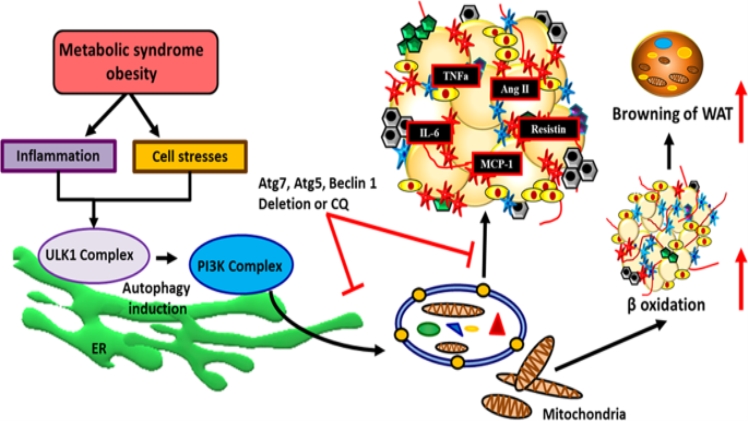What is Autophagy?
Fun Fact: Autophagy is derived from the Ancient Greek word ‘autóphagos’, which literally means “self-devouring”. Today, we will be exploring what autophagy exactly is and why it is important to switch it on.
With time and age, our body cells tend to accumulate a variety of ‘bad’ substances such as infectious pathogens and damaged proteins. Along with that, some of our vital organelles like the mitochondria also start getting worn out, reducing cell efficiency. Autophagy allows our body to clean itself by eating these useless, defective cells and creating room for fresh ones.
Autophagy plays a vital role in the prevention of many serious diseases like Parkinson’s and cancer. With age, our cells become sluggish and have a hard time initiating autophagy, which leads to a build-up of damaged cells. Autophagy has many different types, such as macroautophagy, microautophagy, chaperone-mediated autophagy, xenophagy, and crinophagy.
To find out more about these types and their differences, feel free to check out James Clement’s brilliant book on this, called The Switch.
How can autophagy be increased?
You probably already know that it is possible to boost autophagy by doing intense workouts at the gym, prolonged fasting (24 hours or greater), and sweating in a hot Sydney sauna. And while there is a significant amount of truth to these statements, it can be pretty uncomfortable trying to do all these things long-term. Thankfully, potentially beneficial for anti-aging drugs like Metformin and Rapamycin take the discomfort and hassle out of autophagy.
The role of Metformin in boosting Autophagy.
Metformin is the most frequently prescribed oral diabetes drug across the globe.
Discovered in 1922, Metformin has been widely used for treating diabetes in humans since 1957. It is the fourth most common prescription medicine in the US and has been mentioned in the World Health Organization’s List of Essential Medicines with a remarkable safety rating.
How can Rapamycin increase autophagy?
Rapamycin is a potent mTOR inhibitor.
Rapamycin originates from the remote island of Rapa Nui (Easter Island) and has been awarded the FDA’s approval for 3 main purposes: preventing organ rejection after kidney transplantation, and for managing a rare lung condition known as LAM, and coronary stent coating. However, due to its astounding mTOR inhibition and autophagy-triggering properties, Rapamycin earns a place in our list of top contenders for anti-aging benefits. Though Rapamycin comes with its own set of undesirable side effects, they are easily manageable through proper dosage and timing.
At AgelessRx.com, their doctors have a lot of experience under their belts and make every effort to ensure that patients reap the benefits of Rapamycin while running into minimum side effects.
There is a well-established misconception that aging is inevitable and cannot be stopped. However, the findings from our last 10 years of aging investigations suggest that this is not the case based on the examples in mice, warms and yeast. It has now been proven that aging is by no means inevitable and can be slowed and even reversed in some cases, provided that we know how to work the body’s “levers”.

